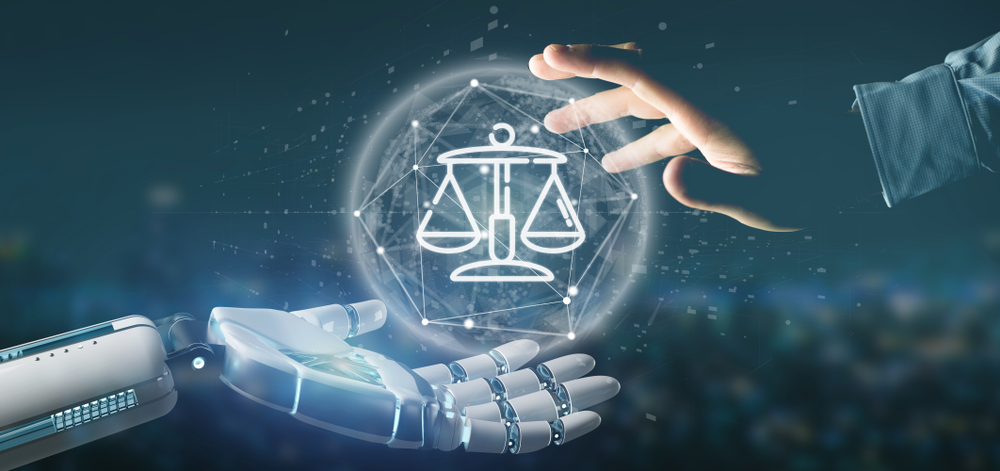
AI in Legal Tech: Automating Legal Research & Processes for a Smarter Future
The legal world, often perceived as traditional and slow to change, is currently undergoing a massive transformation. At the heart of this revolution is Artificial Intelligence (AI) and its incredible ability to automate time-consuming tasks. For anyone looking to understand how technology is reshaping law firms, corporate legal departments, and access to justice, the role of AI in legal tech is an absolute game-changer.
This article will break down how AI is automating legal research and various legal processes, making the complex world of law more efficient, accurate, and accessible for everyone.
What is AI in Legal Tech? (And Why It Matters)
Before we dive into the "how," let’s clarify what we mean by AI in the legal context. Artificial Intelligence refers to computer systems designed to perform tasks that typically require human intelligence. In legal tech, this often involves:
- Machine Learning (ML): Teaching computers to learn from data without being explicitly programmed. For example, showing an AI thousands of contracts to learn how to identify specific clauses.
- Natural Language Processing (NLP): Enabling computers to understand, interpret, and generate human language. This is crucial for reading and analyzing legal documents, which are full of complex text.
- Predictive Analytics: Using data and statistical algorithms to predict future outcomes.
Why is AI so relevant to the legal industry? The legal profession is incredibly data-heavy. Lawyers deal with vast amounts of documents, precedents, statutes, and contracts. Many tasks, like sifting through evidence or drafting standard agreements, are repetitive and time-consuming. This is where AI shines – it can process information at a speed and scale impossible for humans, freeing up legal professionals for more strategic work.
Automating Legal Research: Finding Needles in Haystacks, Instantly
Imagine having to manually search through thousands of dusty law books and case files to find a single relevant precedent. That’s what traditional legal research often felt like. AI has transformed this, making legal research faster, more comprehensive, and incredibly precise.
Here’s how AI is automating legal research:
-
Intelligent Case Law & Statute Analysis:
- Challenge: Lawyers need to find relevant court decisions (case law) and specific laws (statutes) to support their arguments. This involves sifting through massive databases.
- AI Solution: AI-powered platforms use NLP to understand the nuances of legal language. You can input a query in plain English, and the AI will scan millions of documents to identify cases, statutes, and regulations that are directly relevant to your specific issue. It can even highlight the most pertinent paragraphs and show how different cases relate to each other.
- Benefit: Reduces research time from hours or days to minutes, ensuring no critical precedent is missed.
-
Predictive Analytics for Litigation:
- Challenge: Lawyers want to understand the likely outcome of a case or the potential success of a particular legal strategy.
- AI Solution: AI systems can analyze historical court data, including judge rulings, case types, and lawyer success rates, to predict potential outcomes.
- Benefit: Helps lawyers advise clients more effectively, make informed decisions about whether to settle or litigate, and develop stronger strategies.
-
Enhanced E-Discovery:
- Challenge: In litigation, lawyers often need to review millions of electronic documents (emails, texts, files) to find evidence. This is a monumentally expensive and time-consuming task.
- AI Solution: AI tools can rapidly categorize, filter, and identify relevant documents based on keywords, concepts, and communication patterns. They can even spot privilege issues or identify emotional tone in communications.
- Benefit: Significantly slashes e-discovery costs and time, ensuring crucial evidence is found quickly and accurately.
Automating Legal Processes: Beyond Research
AI’s impact isn’t limited to just finding information. It’s also revolutionizing the day-to-day operations of legal departments and law firms by automating many other tedious and repetitive processes.
-
Contract Review and Analysis:
- Challenge: Reviewing contracts for specific clauses, risks, or inconsistencies is a meticulous and time-consuming process, especially for large volumes of agreements.
- AI Solution: AI platforms can instantly read and analyze thousands of contracts. They can identify missing clauses, flag unusual language, extract key data points (e.g., dates, parties, values), and even compare contracts against a standard template.
- Benefit: Accelerates due diligence, mergers & acquisitions, and general contract management, reducing human error and ensuring compliance.
-
Document Automation and Management:
- Challenge: Drafting standard legal documents (e.g., non-disclosure agreements, wills, simple contracts) often involves repetitive copying, pasting, and customizing templates. Managing vast libraries of documents can also be chaotic.
- AI Solution: AI-powered document automation tools can generate customized legal documents based on user inputs. They can also intelligently organize, categorize, and retrieve documents within a firm’s or company’s systems, making information easily accessible.
- Benefit: Saves immense time on routine drafting, ensures consistency, and improves overall document control.
-
Due Diligence:
- Challenge: In corporate transactions (like mergers or acquisitions), lawyers must review enormous amounts of information to assess risks and liabilities.
- AI Solution: AI can rapidly scan and analyze financial reports, legal filings, environmental records, and other documents to identify red flags, potential liabilities, or critical information much faster than human teams.
- Benefit: Speeds up complex transactions, identifies risks more thoroughly, and allows legal teams to focus on high-value analysis rather than basic document review.
-
Compliance Management:
- Challenge: Keeping up with ever-changing laws and regulations across different jurisdictions is a constant battle for businesses.
- AI Solution: AI systems can monitor regulatory updates in real-time, alert legal teams to changes that affect their business, and even help assess the impact of new regulations on existing operations.
- Benefit: Reduces the risk of non-compliance, avoiding hefty fines and reputational damage.
-
Litigation Support & Strategy:
- Challenge: Preparing for trial involves extensive document organization, witness preparation, and strategic planning.
- AI Solution: Beyond e-discovery, AI can help organize trial exhibits, analyze deposition transcripts for key information, and even identify patterns in jury behavior to inform strategy.
- Benefit: Streamlines trial preparation and enhances strategic decision-making.
Key Benefits of AI Automation in Legal Tech
The adoption of AI in legal tech isn’t just about buzzwords; it delivers tangible advantages:
- Enhanced Efficiency & Time Savings: AI can complete tasks in minutes that would take humans hours, days, or even weeks. This frees up legal professionals to focus on complex problem-solving, client relationships, and strategic advice.
- Increased Accuracy & Reduced Errors: AI systems, once properly trained, are less prone to human error, fatigue, or oversight. This leads to more precise research and more consistent document drafting.
- Significant Cost Reduction: By automating labor-intensive tasks, law firms and corporate legal departments can reduce operational costs and offer more competitive pricing to clients.
- Improved Client Service: Faster research and process automation mean quicker turnaround times for clients, leading to greater satisfaction. Lawyers can also dedicate more time to understanding client needs rather than administrative burdens.
- Better Strategic Insights: With AI handling the data crunching, lawyers gain deeper insights into legal trends, case outcomes, and risk factors, enabling them to provide more informed and strategic advice.
- Greater Access to Justice: For smaller firms or even individuals, AI tools can democratize access to legal information and services that were once prohibitively expensive.
Addressing Concerns: The Human Element in an AI-Powered Legal World
It’s natural to have questions and concerns about AI’s role in a profession as critical as law.
- Will AI Replace Lawyers? The consensus among experts is no. AI is a tool, an assistant, not a replacement. It automates repetitive tasks, but it cannot replicate human empathy, nuanced judgment, ethical reasoning, or the ability to build client relationships. Lawyers will evolve into strategic advisors, leveraging AI to enhance their capabilities.
- Bias in AI: AI systems learn from the data they are fed. If that data contains historical biases (e.g., related to race, gender, or socio-economic status), the AI might perpetuate those biases. It’s crucial for developers and users to be aware of this and actively work to ensure data diversity and fairness in AI training.
- Data Privacy and Security: Legal documents often contain highly sensitive and confidential information. Ensuring the security and privacy of data processed by AI systems is paramount and requires robust cybersecurity measures and compliance with data protection regulations.
- The Need for Human Oversight: AI is powerful, but it’s not infallible. Human lawyers must always review AI-generated output, apply their professional judgment, and ensure ethical considerations are met. AI enhances human capabilities; it doesn’t replace the need for them.
Conclusion: Embracing the Future of Law
AI in legal tech is not just a passing fad; it’s a fundamental shift in how legal services are delivered. By automating legal research and processes, AI is empowering legal professionals to work smarter, not just harder. It’s transforming the legal landscape, making it more efficient, accurate, and ultimately, more just.
For beginners to the legal tech space, understanding AI’s role is the first step towards appreciating the exciting future of law. As AI technology continues to advance, we can expect even more innovative solutions that will further streamline operations, enhance decision-making, and ensure that legal services are accessible and effective for everyone. The future of law is here, and it’s powered by AI.



Post Comment